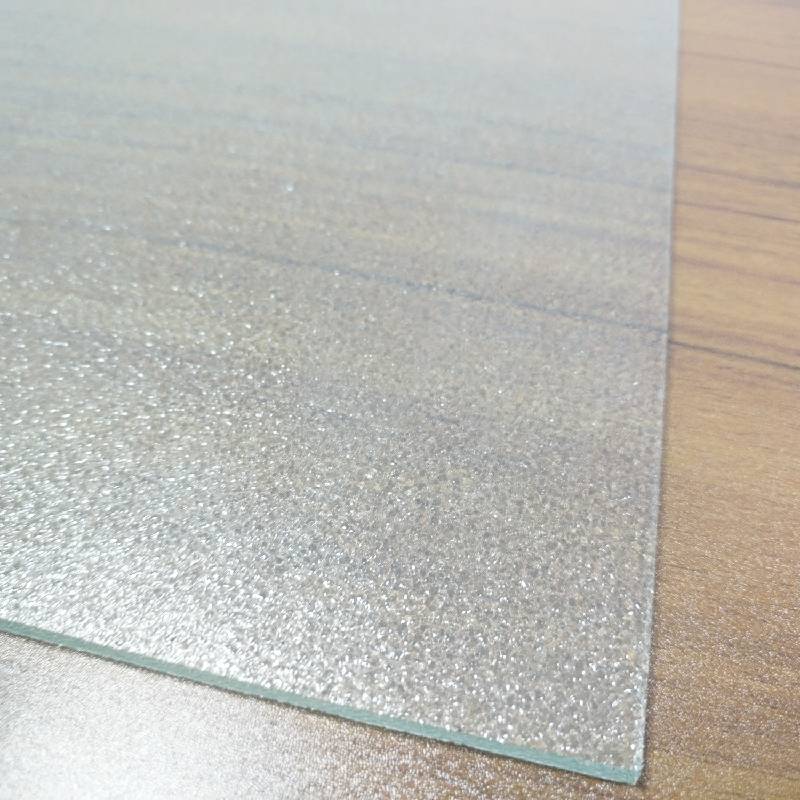The Tempered Glass Process Enhancing Safety and Durability
Tempered glass, also known as toughened glass, is a type of safety glass that has been processed to increase its strength compared to standard glass. The tempering process involves heating the glass to a high temperature, followed by rapid cooling. This method enhances the glass’s strength and makes it more resistant to thermal shock, making it an ideal choice for various applications in construction, automotive, and design.
The tempered glass process begins with the selection of high-quality raw materials. The primary ingredient is silica sand, which is mixed with various additives to improve performance characteristics. Once the mixture is prepared, it is melted at extremely high temperatures in a furnace. This molten glass is then formed into sheets based on the desired thickness and dimensions.
After the glass sheets are formed, they are slowly cooled to room temperature, a process known as annealing. This initial cooling phase is crucial as it removes any internal stresses that may have developed during the heating process. Following annealing, the glass undergoes the tempering process. This involves reheating the sheets to temperatures between 600°C to 700°C. Once the glass reaches the desired temperature, it is rapidly cooled using jets of cold air. This quenching process alters the structure of the glass, creating a compressive stress on the surface while tensile stress exists within the glass. This balance significantly increases the strength of tempered glass.
tempered glass process
The superior strength of tempered glass allows it to withstand impact and stress, making it less likely to break compared to standard glass. In the event that it does break, tempered glass shatters into small, blunt pieces, minimizing the risk of injury. This safety feature makes it a popular choice for a wide range of applications, including shower doors, glass facades, and automobile windows.
In addition to safety, tempered glass is also valued for its aesthetic qualities. It can be produced in various finishes and tints, allowing it to complement modern architectural designs. Furthermore, it can be treated with coatings that enhance its thermal insulation and energy efficiency, making it an attractive option in environmentally conscious building projects.
In conclusion, the tempered glass process is a technological marvel that combines safety, strength, and aesthetics, making it a preferred material in many industries. Its unique properties not only enhance the longevity of products but also contribute to safer environments for users.
 Afrikaans
Afrikaans  Albanian
Albanian  Amharic
Amharic  Arabic
Arabic  Armenian
Armenian  Azerbaijani
Azerbaijani  Basque
Basque  Belarusian
Belarusian  Bengali
Bengali  Bosnian
Bosnian  Bulgarian
Bulgarian  Catalan
Catalan  Cebuano
Cebuano  Corsican
Corsican  Croatian
Croatian  Czech
Czech  Danish
Danish  Dutch
Dutch  English
English  Esperanto
Esperanto  Estonian
Estonian  Finnish
Finnish  French
French  Frisian
Frisian  Galician
Galician  Georgian
Georgian  German
German  Greek
Greek  Gujarati
Gujarati  Haitian Creole
Haitian Creole  hausa
hausa  hawaiian
hawaiian  Hebrew
Hebrew  Hindi
Hindi  Miao
Miao  Hungarian
Hungarian  Icelandic
Icelandic  igbo
igbo  Indonesian
Indonesian  irish
irish  Italian
Italian  Japanese
Japanese  Javanese
Javanese  Kannada
Kannada  kazakh
kazakh  Khmer
Khmer  Rwandese
Rwandese  Korean
Korean  Kurdish
Kurdish  Kyrgyz
Kyrgyz  Lao
Lao  Latin
Latin  Latvian
Latvian  Lithuanian
Lithuanian  Luxembourgish
Luxembourgish  Macedonian
Macedonian  Malgashi
Malgashi  Malay
Malay  Malayalam
Malayalam  Maltese
Maltese  Maori
Maori  Marathi
Marathi  Mongolian
Mongolian  Myanmar
Myanmar  Nepali
Nepali  Norwegian
Norwegian  Norwegian
Norwegian  Occitan
Occitan  Pashto
Pashto  Persian
Persian  Polish
Polish  Portuguese
Portuguese  Punjabi
Punjabi  Romanian
Romanian  Russian
Russian  Samoan
Samoan  Scottish Gaelic
Scottish Gaelic  Serbian
Serbian  Sesotho
Sesotho  Shona
Shona  Sindhi
Sindhi  Sinhala
Sinhala  Slovak
Slovak  Slovenian
Slovenian  Somali
Somali  Spanish
Spanish  Sundanese
Sundanese  Swahili
Swahili  Swedish
Swedish  Tagalog
Tagalog  Tajik
Tajik  Tamil
Tamil  Tatar
Tatar  Telugu
Telugu  Thai
Thai  Turkish
Turkish  Turkmen
Turkmen  Ukrainian
Ukrainian  Urdu
Urdu  Uighur
Uighur  Uzbek
Uzbek  Vietnamese
Vietnamese  Welsh
Welsh  Bantu
Bantu  Yiddish
Yiddish  Yoruba
Yoruba  Zulu
Zulu 

